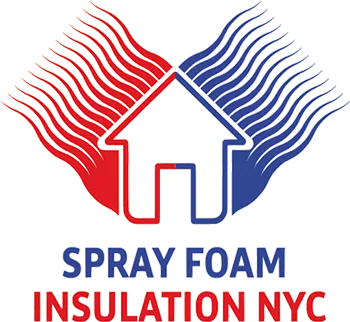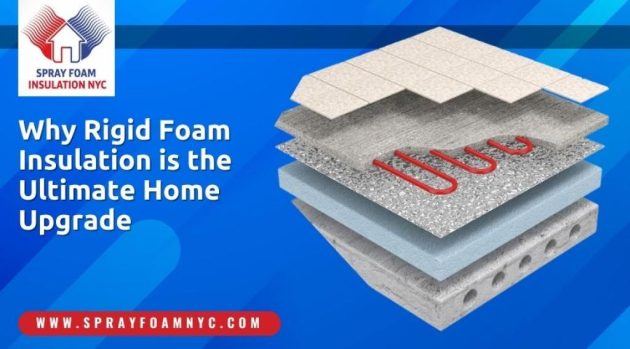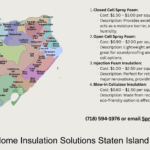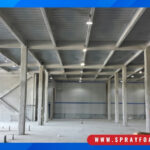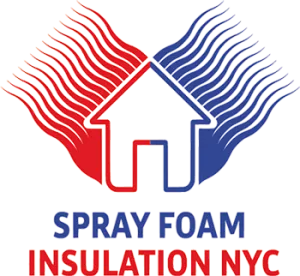As a homeowner, you’re constantly on the lookout for methods to enhance your home’s energy efficiency and lower your monthly expenses. One outstanding home upgrade that accomplishes both goals is foam insulation services. In this article, we’ll delve into the world of rigid foam insulation, elucidating what it is, how it functions, and why it stands as the ultimate home upgrade for energy-conscious individuals like yourself.
What Is Rigid Foam Insulation?
Rigid foam insulation is a type of insulation made from solid boards of foam, which are then cut to fit the specific dimensions of a wall, ceiling, or floor. Unlike other types of insulation, which are usually made from fiberglass, mineral wool, or cellulose, rigid foam insulation has a higher R-value, which is a measure of how well a material can resist heat transfer.
Types of Rigid Foam Insulation
There are three main types of rigid foam insulation:
- Expanded Polystyrene (EPS)
Expanded polystyrene (EPS) is a lightweight and durable foam insulation material that is made by expanding polystyrene beads with steam. EPS is often used for insulating roofs, walls, and foundations. EPS has a relatively low R-value per inch (R-3.6 to R-4.3), but it is also one of the most affordable types of rigid foam insulation. - Extruded Polystyrene (XPS)
Extruded polystyrene (XPS) is a dense and moisture-resistant foam insulation material that is made by extruding polystyrene through a die. XPS is often used for insulating roofs, walls, and foundations. XPS has a higher R-value per inch than EPS (R-5 to R-5.5), but it is also more expensive. - Polyisocyanurate (Polyiso)
Polyisocyanurate (polyiso) is a lightweight and highly efficient foam insulation material that is made by combining isocyanurate and polyol. Polyiso is often used for insulating roofs and walls. Polyiso has the highest R-value per inch of any type of rigid foam insulation (R-6 to R-6.5), but it is also the most expensive.
How Rigid Foam Insulation Works
Rigid foam insulation works by slowing down the transfer of heat through walls, floors, and ceilings. When heat tries to move from a warmer area to a cooler area, rigid foam insulation acts as a barrier, preventing the heat from escaping or entering the home. This makes the home more energy-efficient, reducing the need for heating and cooling.
Benefits of Rigid Foam Insulation
There are several benefits of installing rigid foam insulation in your home:
- Energy Efficiency
Rigid foam insulation can significantly increase your home’s energy efficiency, reducing your monthly heating and cooling bills. Because it is a solid material, rigid foam insulation provides better insulation than other types of insulation, which can settle or shift over time. - Moisture Resistance
Rigid foam insulation is also highly resistant to moisture, making it an excellent choice for areas of the home that are prone to dampness or water damage. Unlike other types of insulation, which can absorb moisture and become less effective, rigid foam insulation retains its insulating properties even when wet. - Soundproofing
Rigid foam insulation can also help to reduce noise levels inside the home. Because it is a solid material, rigid foam insulation can absorb sound waves, preventing them from passing through walls and floors. This can be particularly beneficial for homes that are located in noisy areas or for rooms that require a quiet environment, such as bedrooms or home offices. - Durability
Rigid foam insulation is a durable material that can last for many years with proper installation and maintenance. Unlike other types of insulation, which can become compressed or settle over time, rigid foam insulation retains its shape and insulating properties for the life of the home.
Rigid Foam Insulation vs. Other Types of Insulation
While rigid foam insulation has many benefits, it is important to consider the advantages and disadvantages of other types of insulation as well. Fiberglass, for example, is a popular and affordable insulation material that is easy to install. However, fiberglass insulation can settle or shift over time, reducing its effectiveness. It is also not as effective at blocking sound or moisture as rigid foam insulation.
Mineral wool insulation is another option that is highly resistant to fire and moisture. However, mineral wool insulation can be more expensive than other types of insulation, and it is not as effective at blocking sound as rigid foam insulation.
How to Install Rigid Foam Insulation
Installing rigid foam insulation requires some specialized tools and knowledge, but it can be done by a professional insulation service contractor near you or a homeowner with some DIY experience. Rigid foam insulation is typically installed on the exterior of the home, under the siding or roofing material. It can also be installed on the interior of the home, between the studs or rafters.
To install rigid foam insulation, the surface must be clean, dry, and free of any debris or protrusions. The insulation is then cut to fit the specific dimensions of the space and secured in place with adhesive or mechanical fasteners. Seams and joints are sealed with tape or caulk to prevent air leaks.
Upgrade Your Home’s Energy Efficiency Today with Rigid Foam Insulation
Rigid foam insulation is the ultimate home upgrade for homeowners who are looking to increase their home’s energy efficiency, reduce their monthly bills, and improve their overall comfort. With its high R-value, moisture resistance, soundproofing capabilities, and durability, rigid foam insulation is a smart investment that can pay off for many years to come.
Don’t miss out on the incredible benefits of rigid foam insulation! Experience top-notch Foam Insulation Service in Queens, NY, and enjoy enhanced energy efficiency, lower bills, and unmatched comfort. Upgrade your home today for a brighter, cozier future.
